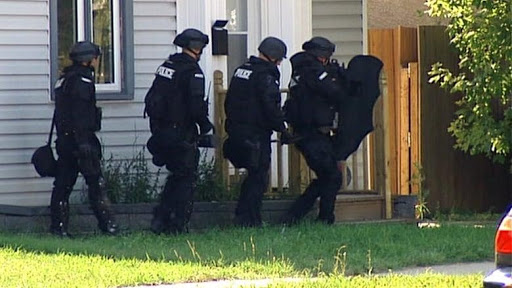Drug investigations often commence as a result of information learned from confidential informants. Police use the information to gather evidence from observed behavior and evidence “consistent with drug trafficking” which has no known definition, but according to most police officers, is anything a person does once they become a target. In one recent case of this writer, indicia that was consistent with drug trafficking was an individual meeting with his lawyer. Police assumed it was a drug deal, rather than a legal meeting…that didn’t go well for the prosecution at trial.
In a recent case out of Ontario, R v Fearon, a confidential informant gave information that Fearon was dealing cocaine and heroin. The informer provided an address, vehicle description, the history of dealing, a concentrated geographic location and the street name to be used during all drug transactions.

Police corroborated some of the peripheral information and arranged an undercover buy from Fearon. During the meet, Fearon sold the undercover cocaine and said he could get the heroin later. After the buy, police followed Fearon and found the vehicle parked outside of the residence provided by the confidential informant. The address was a residence that had previously been linked to the dealer, but police didn’t believe it was his current residence.
Based on the confidential informant’s information and subsequent police investigation, a search warrant was obtained to search the residence and vehicle. Though the vehicle was never located after the search warrant was issued, the residence was raided and police found drugs and related paraphernalia.

At trial, Fearon challenged the search warrant arguing that the informant’s information about the vehicle and address were not accurate and these errors should have required further investigation before obtaining a warrant.
The Court dismissed the application and found that there was no breach of the accused’s section 8 Charter right to be free from unreasonable search and seizure.
The informer information was compelling and corroborated. Police engaged in a buy for the drugs expected. Although there was incomplete information to assess the credibility and reliability of the informer, the Debot criteria must be applied holistically. The weakness in credibility was made up by the constellation of factors and complete investigative picture based on the facts of the case.
There was little to no evidence that Fearon actually lived at the address provided by the informant, however, the Court found that police did not have to establish that the dealer lived there, just that evidence would be found at the location. Given that the dealer drove to the house directly after the drug deal, with marked bills, the necessary nexus to the residence was made out. In R v Soto, the Ontario Court of Appeal upheld reasoning of the reviewing court that when a dealer travels from his or her residence straight to a drug transaction, it can be inferred that drugs will be found at the residence. The trial judge in Fearon made the same conclusion:
When a drug dealer, who sells within a small geographic area, goes to a nearby residence to which he or she is connected immediately after a transaction with an undercover police officer, it follows that there is a good chance that there will be drugs or other evidence in that residence.
The search warrant was upheld and Fearon was convicted.
Cory Wilson is a criminal defence lawyer based in Calgary. If you have been charged with a criminal offence or are a suspect in a criminal investigation, call today for a free, no obligation consultation.
